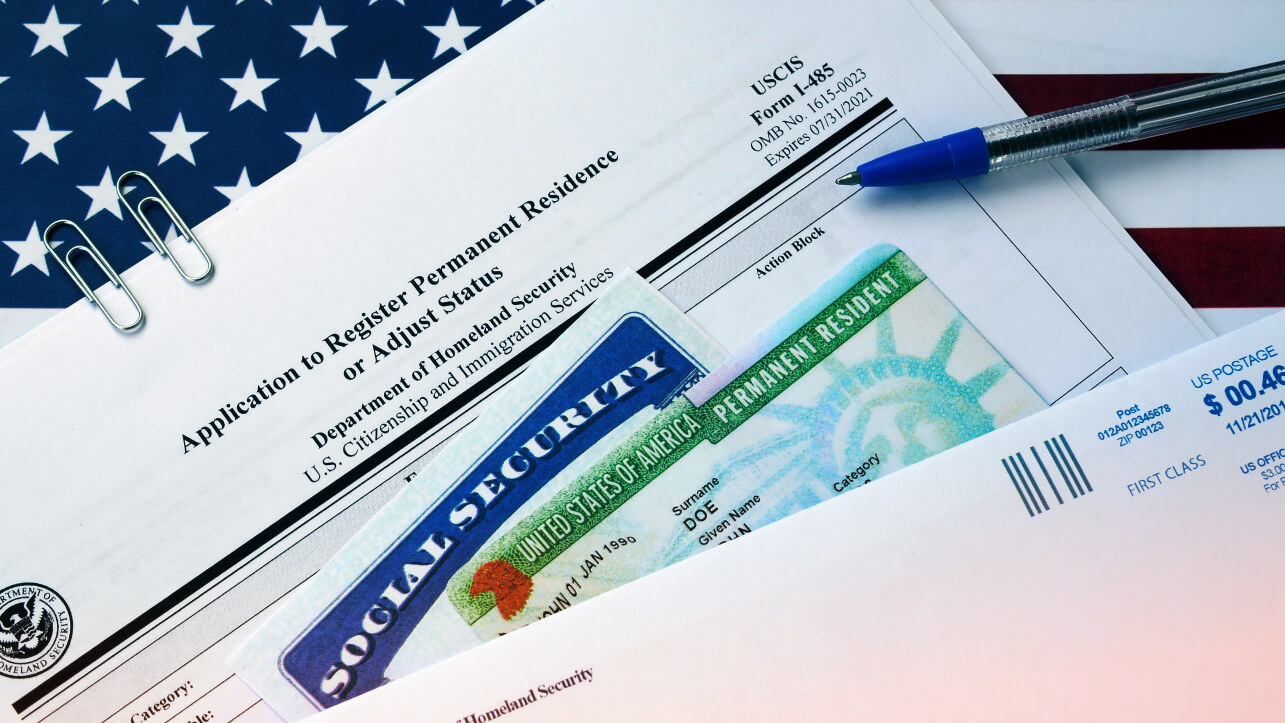What Happens if Adjustment of Status is Denied: A Comprehensive Guide
Key Takeaways
- Consequences of Denial: Denial of adjustment of status can impact your immigration status, work authorization, and family unity, and may lead to removal proceedings.
- Available Options: You can file a motion to reconsider or reopen, request a review by the Administrative Appeals Office, re-file your application, or prepare for removal proceedings.
- Common Reasons for Denial: Incomplete applications, eligibility issues, and legal problems are common reasons for denial. Addressing these proactively can prevent future denials.
- Preventative Measures: Consulting with an immigration attorney, double-checking your application, and staying informed about USCIS requirements are crucial steps to strengthen your application.
- Additional Considerations: Different visa types may require specific approaches, and seeking expert opinions and support resources can provide valuable guidance.
The journey to becoming a lawful permanent resident (LPR) in the United States through adjustment of status (AOS) is often complex and fraught with uncertainties. For many, it represents the culmination of years of effort and hope. However, what happens when this crucial step is denied?
Understanding the reasons behind a denial and the available options is essential to navigate this challenging situation. In this guide, we will explore the immediate consequences, available options, common reasons for denial, and preventative measures to help you stay on track towards achieving your residency goals.
Immediate Consequences of Denial
When USCIS denies your adjustment of status application, the immediate aftermath can be daunting. Here’s a closer look at what to expect:
- Impact on Immigration Status: If you are currently on a non-immigrant visa nearing its expiration, a denial means you might start accruing unlawful presence. This can lead to severe penalties, including bans on re-entry into the United States. For example, if your F-1 student visa has expired, you could be subject to removal proceedings.
- Work Authorization and Benefits: A denial might result in the loss of work authorization and access to benefits such as employment-based healthcare. For instance, an individual working under an H-1B visa might lose their job and associated benefits if their AOS is denied.
- Family Separation: For those who applied based on family relationships, a denial can lead to the potential separation of families. This is particularly heartbreaking when other family members have already secured or are in the process of securing their residency.
Options After Denial
Despite the denial, there are several avenues you can explore to rectify the situation:
- File a Motion to Reconsider or Reopen:
- Motion to Reconsider: This is filed if you believe USCIS made a legal or factual error in their decision. It requires presenting evidence that USCIS overlooked or misinterpreted the law. For example, if USCIS denied your application based on a perceived inadmissibility due to a prior visa overstay, and you have evidence that you left the country within the permitted grace period, a motion to reconsider would be appropriate.
- Motion to Reopen: This is appropriate if new evidence has come to light that was not available during the initial application process. This evidence must be new and relevant to your case. For instance, if new medical evidence proves that you qualify for an exemption based on health grounds, you could file a motion to reopen.
- Request a Review by the Administrative Appeals Office (AAO): In some cases, you can request that USCIS certify your case for review by the AAO. This is generally done when you believe there was an error in the application process. However, this does not allow for new evidence to be submitted. A successful AAO appeal could be based on procedural errors in the initial review.
- Re-file the Application: If you remain in the United States legally, you might have the option to re-file your Form I-485. This allows you to address the issues that led to the initial denial and provide any additional required documentation. Consultation with an immigration attorney can significantly improve your chances of success with a re-filed application. For example, correcting previously submitted information about financial sponsorship can make a significant difference.
- Removal Proceedings: If your visa has expired or you have no legal right to remain in the U.S., USCIS may initiate removal proceedings. During this process, you will have the opportunity to present your case before an immigration judge. It is crucial to have legal representation to navigate this complex process effectively. An example would be presenting evidence of extreme hardship that removal would cause to family members.
Common Reasons for Denial and How to Address Them
Understanding why AOS applications are denied can help you avoid common pitfalls:
- Incomplete Applications or Incorrect Information: A surprisingly common reason for denials is the submission of incomplete applications or applications that contain incorrect information. Always double-check that every section of the application is completed and that all information is accurate. For instance, if you mistakenly leave out a section detailing your employment history, USCIS may deny your application for incompleteness.
- Eligibility Issues: Common eligibility issues include not meeting residency requirements, having a criminal record, or failing to provide necessary financial support documentation. Addressing these issues involves thoroughly understanding the eligibility criteria and ensuring you meet all the requirements before applying. For example, if you are applying based on marriage, ensure that all documents proving the bona fide nature of the marriage are included.
- Legal Problems: Legal problems such as prior deportations, visa overstays, or fraudulent activity can lead to denial. Addressing these issues often requires legal assistance. If you have a prior deportation order, you might need to apply for a waiver of inadmissibility before reapplying for AOS.
Preventing Future Denials
To prevent future denials, consider the following steps:
- Consult an Immigration Attorney: An experienced attorney can help ensure that your application is complete, accurate, and supported by all necessary documentation. For example, an attorney can help you gather all necessary affidavits and evidence to support your application.
- Double-Check Your Application: Ensure that all forms are correctly filled out and all required documents are included. Missing or incorrect information is a common reason for denials. For instance, ensure that all personal information matches exactly across all documents to avoid discrepancies.
- Stay Informed About USCIS Requirements: USCIS requirements and procedures can change. Staying informed can help you avoid common pitfalls and prepare a strong application. Regularly check the USCIS website or consult with your attorney to stay updated on the latest requirements and policy changes.
Conclusion
Facing a denial of your adjustment of status application can be stressful and challenging, but understanding your options and taking proactive steps can make a significant difference. Consult with an immigration attorney to explore your best course of action and improve your chances of achieving your goal of permanent residency in the United States.
For more detailed guidance and assistance, you may consider consulting a reputable immigration law firm.
The information provided on this website does not, and is not intended to, constitute legal advice; instead, all information, content, and materials available on this site are for general informational purposes only. Information on this website may not constitute the most up-to-date legal or other information. This website contains links to other third-party websites. Such links are only for the convenience of the reader, user, or browser; the writer does not recommend or endorse the contents of the third-party sites.
Readers of this website should contact a licensed attorney to obtain advice with respect to any particular legal matter.



